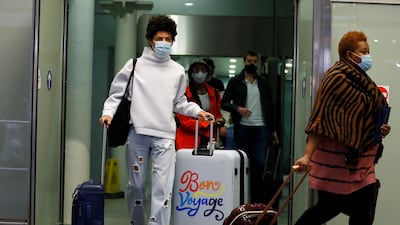One million British travellers are likely to cancel or prematurely end their holidays today after the government announced that quarantine would be imposed on all people returning from France.
In a drastic move to prevent the spreading of coronavirus into the UK, France was among six countries that were named as having infection rates considered too high.
The major European country is joined by the Netherlands, Monaco, Malta, Turks & Caicos and Aruba being removed from Britain’s travel corridor list after the Foreign Office advised against all but essential travel.
The sudden decision was described as “summer cancelled” and will be a significant hit for the ailing tourist industry.
Travellers were set a deadline of 4am on Saturday to return home or face a 14-day quarantine of self-isolation.
France and the other countries now join Spain as places that have been removed from Britain’s “green list” of destinations deemed safe for travel after what officials called a “significant change in Covid-19 risk”.
In the past two weeks the infection rate in France has shot up from a daily average of 900 to 1,900 per day as a second wave of the pandemic appeared that it might take hold.
Ports, airports, train stations and the Channel Tunnel are bracing themselves for chaos today as hundreds of thousands of holidaymakers stream home before the 4am deadline.
Prior to the announcement Boris Johnson, the British prime minister, said the government would be “absolutely ruthless” on imposing travel restrictions even with “our closest and dearest partners”.
“We can’t be remotely complacent about our own situation,” he said. “Everybody understands that in a pandemic you don’t allow your population to be reinfected or the disease to come back in. That is why the quarantine measures are very important and we have to apply them in a very strict way.”
The French government, which was relying on British tourism to help its economy recover, indicated it was likely to retaliate with a reciprocal quarantine.
“A British decision that we regret and which will lead to a measure of reciprocity, hoping that things will return to normal as soon as possible,” tweeted Clement Beaune, a French junior European affairs minister.
However, with a significant rise in the past week, including 2,699 new Covid cases reported yesterday, the French government has designated Paris a “red zone”, which allows the authorities to restrict travel and impose local lockdowns.
In a statement the British government said: “The Joint Biosecurity Centre and Public Health England have indicated a significant change in Covid-19 risk in all six destinations, leading to ministers removing these from the current list of travel corridors.”
Infections in the EU countries of the Netherlands and Malta have doubled in the past week and there has been significant increases in Turks and Caicos and Aruba, both small Caribbean islands nations.
The tourist industry is said to be furious at the decision with sources stating that with “summer effectively cancelled” the move sounded “the death knell for many travel companies”.


